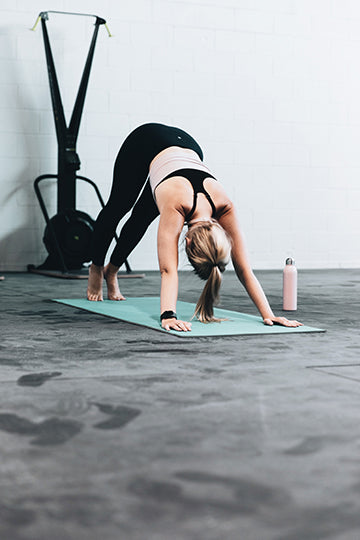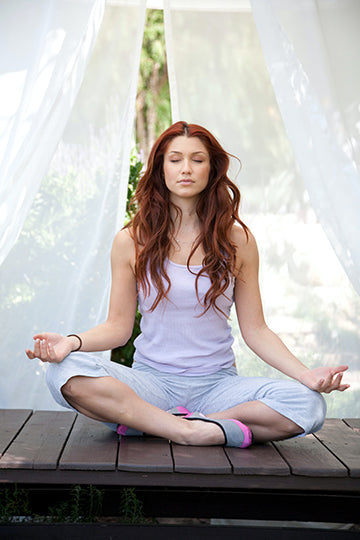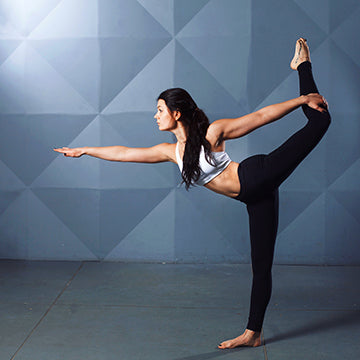
Why Meditation is a Powerful Tool for Your Yoga Practice

Meditation is a practice that involves focusing the mind on a particular object or thought to achieve a state of calm and relaxation. While yoga is often associated with physical postures or asanas, meditation is an integral part of the yoga practice. Practicing meditation before or after yoga can help you to achieve a deeper level of relaxation and focus, leading to a more fulfilling yoga practice.
Definition of Meditation
Meditation is a technique that involves focusing your attention on a particular object or thought to achieve a state of calm and relaxation. It can be practiced in many different forms, including mindfulness meditation, loving-kindness meditation, and transcendental meditation. Regardless of the form, meditation is a powerful tool that can help you achieve a deeper sense of focus, relaxation, and well-being.
Explanation of the Connection Between Yoga and Meditation
Yoga and meditation are closely related practices that complement each other well. Yoga helps to prepare the body for meditation by releasing tension and promoting relaxation. Meditation, in turn, helps to cultivate the focus and concentration needed to practice yoga effectively. Together, they create a powerful combination that can help you achieve a deeper sense of physical and mental well-being.
Physical Benefits of Meditating Before Yoga Practice
-
Increased Flexibility
Meditation can help to release tension and increase blood flow to the muscles, which can lead to increased flexibility and range of motion. This can help you to perform yoga postures more effectively and with less risk of injury. -
Improved Strength and Balance
Meditation can also help to improve your overall strength and balance. By practicing mindfulness and focusing your attention on your body, you can become more aware of your posture, alignment, and muscle engagement. This increased awareness can lead to improved strength and balance in your yoga practice. -
Reduced Risk of Injury
By combining meditation with yoga, you can reduce your risk of injury. Meditation can help to release tension and promote relaxation, which can reduce the risk of straining or overexerting your muscles during yoga practice. Additionally, by focusing your attention on your body and breath, you can become more aware of any discomfort or pain and adjust your practice accordingly.
Mental Benefits of Meditating Before Yoga Practice
-
Reduced Stress and Anxiety
Meditation is a powerful tool for reducing stress and anxiety. By practicing mindfulness and focusing your attention on your breath or a particular object, you can quiet your mind and reduce the mental chatter that often contributes to feelings of stress and anxiety. This can help you to approach your yoga practice with a greater sense of calm and focus. -
Increased Focus and Concentration
Meditation can also help to improve your focus and concentration. By practicing mindfulness and focusing your attention on a particular object or thought, you can develop the mental discipline needed to stay focused during your yoga practice. This can help you to achieve greater depth and precision in your postures. -
Improved Mood
Meditation has been shown to have a positive impact on mood. By reducing stress and anxiety and promoting relaxation, meditation can help to elevate your mood and promote feelings of well-being. This can help you to approach your yoga practice with a greater sense of positivity and enthusiasm.
How to Incorporate Meditation into Your Yoga Practice
-
Setting Aside Time for Meditation
One of the keys to incorporating meditation into your yoga practice is to set aside dedicated time for meditation. This can be as little as 5-10 minutes per day, but it should be consistent. Try setting aside time in the morning or evening when you can practice meditation regularly. -
Choosing the Right Meditation Technique
There are many different meditation techniques to choose from, and it's important to find one that resonates with you. Some popular meditation techniques include mindfulness meditation, loving-kindness meditation, and transcendental meditation. Experiment with different techniques to find one that works best for you. -
Creating a Comfortable and Distraction-Free Environment
To get the most out of your meditation practice, it's important to create a comfortable and distraction-free environment. Find a quiet space where you won't be interrupted, and make sure you're comfortable. You may want to sit on a cushion or use a meditation bench to help you maintain good posture.
Common Misconceptions About Meditation and Yoga
-
The Belief That Meditation Is Only for the Spiritually Inclined
While meditation has long been associated with spiritual practices, it is a technique that can be practiced by anyone regardless of religious or spiritual beliefs. Meditation can be a secular practice that helps you to cultivate focus, relaxation, and well-being. -
The Belief That Yoga Alone Is Enough for Physical and Mental Health
While yoga is a powerful tool for promoting physical and mental well-being, it is not the only tool. Incorporating meditation into your yoga practice can help you achieve a deeper level of relaxation and focus, leading to greater overall well-being. -
The Belief That Meditation and Yoga Require a Significant Time Commitment
While it's true that meditation and yoga require some time commitment, you don't need to dedicate hours every day to see benefits. Even 5-10 minutes of meditation per day can have a significant impact on your physical and mental well-being.
Conclusion
-
Summary of the Benefits of Incorporating Meditation into a Yoga Practice
By incorporating meditation into your yoga practice, you can achieve a deeper sense of relaxation, focus, and overall well-being. Meditation can help to reduce stress and anxiety, increase flexibility and balance, and improve mood and concentration. -
Motivation for Readers to Try Meditation
If you haven't tried meditation before, now is the time to start. Experiment with different techniques, set aside dedicated time for practice, and be patient with yourself. With regular practice, you can experience the transformative effects of meditation on your yoga practice and your life.
Sources:
- Yoga Vs Meditation: Differences And Similarities
- Why Yoga Is a Powerful Tool in Recovery
- The Power of Meditation - Health Encyclopedia - URMC
- Meditation and Awareness as Tools to Explore the Mind
- 5 Powerful Reasons to Meditate
- Meditation Is a Powerful Tool - Use It To Transform and ...
- Teaching Meditation in a Yoga Class: Creating Time
- Meditation: Why You Should Do It
- How Yoga and Meditation Can Improve Your Creative Work


